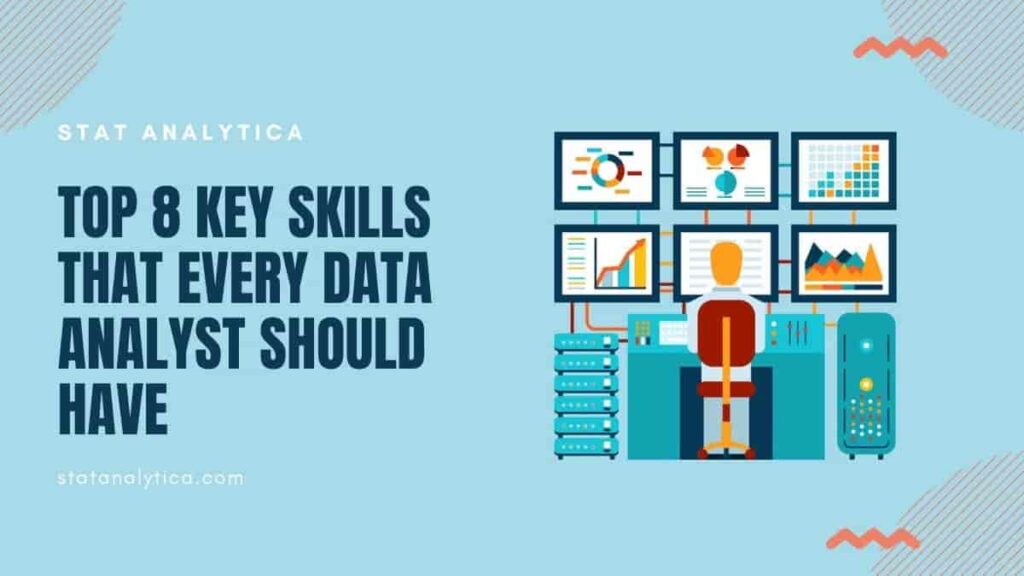If you’ve ever wondered about the difference between these two roles, you’re not alone. The conversation around data analytics vs data engineering is becoming more common, especially as careers in data continue to grow. While the terms might sound similar, they represent two very different parts of the data process. One focuses on analyzing and making sense of data, while the other builds the systems that make that analysis possible.
In this blog, we’ll break down the key differences between data analytics and data engineering in a simple and easy-to-understand way. Whether you’re thinking about a career in data, planning to hire a data team, or just curious about how companies use information, this guide will help you get a clear picture of these two important fields.
Understanding the Role of Data Analytics
Table of Contents
To begin our comparison of data analytics vs data engineering, let’s start with what data analytics is all about. Data analytics focuses on interpreting data to find patterns, trends, and insights that can help businesses make informed decisions.
A data analyst usually works with clean and organized data that’s ready to be explored. They use tools like Excel, Tableau, Power BI, or Python to dig into the numbers and answer questions like:
- What products performed best last quarter?
- Which customer segment is most profitable?
- Why did sales drop in a particular region?
Data analytics is more than charts and graphs—it’s about understanding the “why” behind the data. Analysts play a crucial role in guiding strategies, forecasting future trends, and ensuring that business decisions are backed by evidence.
Understanding the Role of a Data Engineer
When comparing data analytics vs data engineering, it’s important to recognize that data engineering is more about the technical side of handling data. While data analysts focus on insights, data engineers focus on building the systems that allow those insights to be possible.
A data engineer builds the infrastructure that collects, stores, and moves data across systems. They manage large databases and ensure that the data is clean, consistent, and accessible to analysts and scientists.
For example, imagine a retail company that collects data from its website, mobile app, and in-store purchases. A data engineer ensures that all of this information is gathered in one place, formatted correctly, and ready for analysis. Without this groundwork, data analysts wouldn’t have anything reliable to work with.
Key Differences in Daily Responsibilities
It helps to examine what each role does on a typical day to really grasp the contrast between data analytics and data engineering.
Data Analysts might:
- Analyze sales data to identify trends.
- Create dashboards for management.
- Use SQL to query databases.
- Build visual reports to present findings.
- Recommend strategies based on insights.
Data Engineers might:
- Design and build data pipelines to collect data from various sources.
- Develop and maintain large-scale storage systems.
- Clean, transform, and validate raw data.
- Monitor data flows and system performance.
- Ensure data privacy and security protocols are followed.
Tools and Technologies They Use
Another major difference in data analytics vs data engineering lies in the tools they use daily. While there may be some overlap, each role has its own toolbox.
Popular Tools for Data Analysts:
- Excel & Google Sheets: For basic analysis and reporting.
- SQL: To retrieve and query structured data.
- Tableau & Power BI: For data visualization.
- Python & R: For more advanced analysis and statistical modeling.
Common Tools for Data Engineers:
- Apache Hadoop & Apache Spark: For processing large data sets.
- ETL Tools (Extract, Transform, Load): Like Apache Airflow or Talend.
- Cloud Platforms: AWS, Google Cloud, Azure.
- Databases: MySQL, PostgreSQL, MongoDB, Snowflake.
Data engineers usually work more with backend systems and infrastructure, while analysts are more focused on the front-end interpretation and presentation of data.
Required Skills and Educational Backgrounds
When discussing data analytics vs. data engineering, it’s useful to examine the typical skill sets and academic backgrounds of professionals in each field.
Data Analysts Usually Have:
- Degrees in Business, Statistics, Economics, or Data Science.
- Strong analytical and problem-solving skills.
- Ability to communicate insights clearly to non-technical teams.
- A good grasp of statistics and probability.
Data Engineers Usually Have:
- Degrees in Computer Science or Information Technology.
- Strong coding skills in languages like Python, Java, or Scala.
- Knowledge of data architecture and system design.
- Experience working with distributed computing systems.
The key difference is that analysts tend to favor business thinking and analysis, while engineers favor technical development and software systems.
Career Paths: Which Role Offers What Opportunities?
Exploring career growth in data analytics vs data engineering reveals that both offer excellent opportunities in today’s job market, but they cater to different interests and long-term goals.
Data Analyst Career Path:
- Junior Data Analyst → Data Analyst → Senior Analyst → Analytics Manager → Head of Data
- Possible shifts into data science or in business intelligence.
Data Engineer Career Path:
- Junior Data Engineer → Data Engineer → Senior Engineer → Data Architect → Director of Engineering
- Opportunities to transition into AI engineering or machine learning engineering.
Data engineers often earn higher starting salaries due to their technical expertise, but both roles are highly valued and in demand across industries.
Also Read: Difference between Python and C++
How They Work Together in Real Projects
One of the most interesting aspects of data analytics vs. data engineering is how the two roles complement each other in a business environment. They’re not competing—they’re collaborating.
Let’s say a company wants to improve its customer experience by understanding user behavior on its website. Here’s how the workflow might look:
- The Data Engineer sets up pipelines to gather data from user interactions, such as clicks, time spent on pages, and purchases. They ensure the data is properly stored and cleaned.
- The Data Analyst then uses this data to identify patterns, like which pages users exit from or which products get the most attention, and presents findings to the marketing team.
Together, they transform raw data into smart business decisions.
Which Role Is Right for You?
If you’re stuck choosing between data analytics and data engineering, think about your interests and strengths.
- If you enjoy solving puzzles with numbers, drawing conclusions, and telling stories through data—data analytics might be your path.
- If you love building systems, writing code, and handling large-scale infrastructure, data engineering may be a better fit for you.
Some people even transition from one to the other over time. For instance, an analyst might pick up programming skills and move into engineering, while an engineer might shift towards more analytical or strategic roles.
Industry Demand and Salary Trends
Looking at the job market for data analytics vs data engineering, both roles are in high demand, especially in tech, finance, healthcare, and e-commerce.
- Data Analysts can expect starting salaries from $60,000 to $90,000, with experienced professionals earning up to $120,000+ in large organizations.
- Data Engineers often start around $80,000 to $110,000, with senior roles going well above $150,000 depending on the location and company.
With data becoming more central to organizations’ operations, job security and growth in both roles are very strong.
Final Thoughts
To sum it up, the debate around data analytics vs data engineering isn’t about which one is better—it’s about understanding how they serve different purposes. Data engineers are the builders. They create the systems that allow data to flow, be stored, and be accessed. Data analysts are the interpreters. They take that data and give it meaning and direction. Think of them as two halves of a powerful engine—when they work together, businesses gain the clarity they need to move forward confidently.
FAQs
Is coding required for both data analytics and data engineering?
Yes, but the level of coding varies. Data analysts typically use SQL and sometimes Python or R for analysis. Data engineers require deeper coding knowledge in languages like Python, Java, or Scala to build and maintain data infrastructure.
Which has more job opportunities: data analytics or data engineering?
Both fields are growing rapidly, but demand for data engineers is especially high due to the increasing complexity of data systems. Businesses also need skilled analysts to turn that data into actionable insights.
What industries hire data analysts and data engineers?
Today, almost every industry relies on these roles, especially technology, finance, healthcare, retail, e-commerce, logistics, and manufacturing. Wherever data is used for decision-making, these professionals are needed.
Is data engineering harder than data analytics?
It depends on your background. Data engineering involves more technical tasks like programming, managing databases, and working with cloud systems, which some may find more challenging. Data analytics involves critical thinking and business acumen, which others may find demanding differently.


